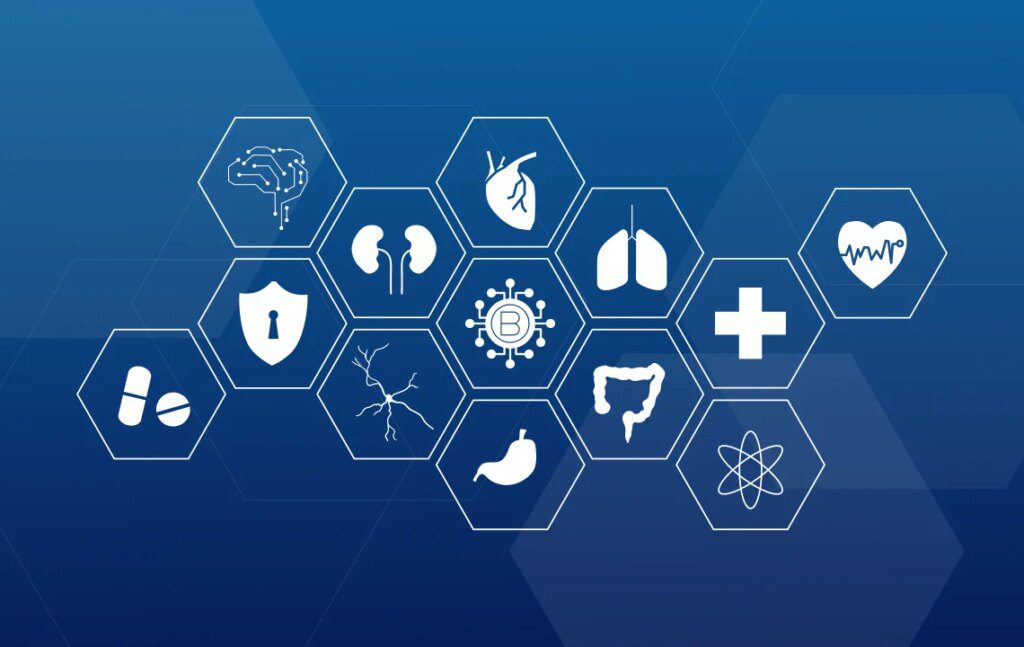Blockchain technology has the potential to revolutionize the healthcare industry by securely storing and managing electronic medical records (EMRs). Traditional centralized systems are vulnerable to data breaches and lack interoperability, hindering efficient healthcare delivery. Implementing blockchain can enhance security, improve interoperability, and enhance patient privacy. By eliminating single points of failure, patient data is stored across multiple nodes, making it difficult for hackers to tamper with. Blockchain technology can also streamline clinical trials by securely recording and managing trial data. However, challenges such as scalability and regulatory compliance need to be addressed for widespread adoption.
Blockchain in Healthcare: Securing Medical Records and Enhancing Patient Privacy
Introduction
In recent years, blockchain technology has gained significant attention across various industries for its potential to revolutionize processes and enhance security. The healthcare sector, in particular, is exploring how blockchain can securely store and manage electronic medical records (EMRs) to improve patient privacy and data integrity. This article explores the potential applications of blockchain in healthcare and how it can revolutionize the industry.
Understanding Blockchain Technology
Blockchain technology is a decentralized, distributed ledger that enables the secure recording, storage, and validation of transactions across multiple computers or nodes. Each transaction, or ‘block,’ is recorded in a permanent and immutable manner, creating a chain of blocks, hence the name ‘blockchain.’
Challenges in Healthcare Data Management
Healthcare organizations face numerous challenges when it comes to managing patient data. Traditional centralized systems are vulnerable to data breaches, unauthorized access, and data tampering. Moreover, the lack of interoperability between different healthcare systems often results in fragmented patient records, hindering efficient healthcare delivery and putting patients at risk.
Benefits of Blockchain in Healthcare
Implementing blockchain technology in healthcare can bring several benefits:
Enhanced Security
Blockchain’s decentralized nature provides enhanced security by eliminating single points of failure. Patient data is stored across multiple nodes, and each block contains a cryptographically hashed link to the previous block, making it extremely difficult for hackers to alter or tamper with the data.
Improved Interoperability
Blockchain’s distributed ledger can bridge the interoperability gap between different healthcare systems. By storing data in a standardized format and creating a shared infrastructure, healthcare providers can seamlessly access and share patient records, resulting in improved care coordination and reduced medical errors.
Enhanced Privacy
Blockchain enables patients to have more control over their healthcare data. Instead of relying on centralized databases where data can be accessed without consent, patients can grant access to their records through secure cryptographic means. This gives patients ownership over their data, ensuring enhanced privacy and data protection.
Streamlined Clinical Trials
Blockchain technology can streamline clinical trials by securely recording and managing trial data. It can facilitate transparent data sharing among researchers, patients, and regulators, speeding up the trial process and ensuring the integrity of research outcomes.
Real-world Examples
Several initiatives are already exploring the application of blockchain in the healthcare industry:
Medicalchain
Medicalchain is a blockchain-based platform that allows patients to securely store and share their medical records. The platform ensures patient privacy by utilizing smart contracts and encryption techniques, giving patients full control over their health data.
MedRec
MedRec is a blockchain system developed by MIT that enables the secure sharing of medical records among multiple providers. It aims to improve data interoperability and patient privacy, reducing administrative burdens and enhancing healthcare delivery.
Challenges and Limitations
Despite its potential, blockchain in healthcare still faces various challenges:
Scalability
Blockchain networks currently face scalability limitations in terms of the number of transactions they can process. As healthcare generates a vast amount of data, the technology needs to evolve to handle the volume efficiently.
Regulatory Compliance
Adopting blockchain in healthcare requires navigating complex regulatory frameworks to ensure compliance with patient privacy laws. Balancing data transparency with privacy protection poses challenges that must be addressed to gain widespread adoption.
Conclusion
Blockchain technology holds significant promise for securing medical records, enhancing patient privacy, and revolutionizing the healthcare industry. By leveraging its distributed and immutable characteristics, healthcare organizations can streamline data management, improve interoperability, and empower patients with greater control over their health information. However, further research, development, and collaboration between industry stakeholders and regulators are essential to address the challenges and unlock the full potential of blockchain in healthcare.
